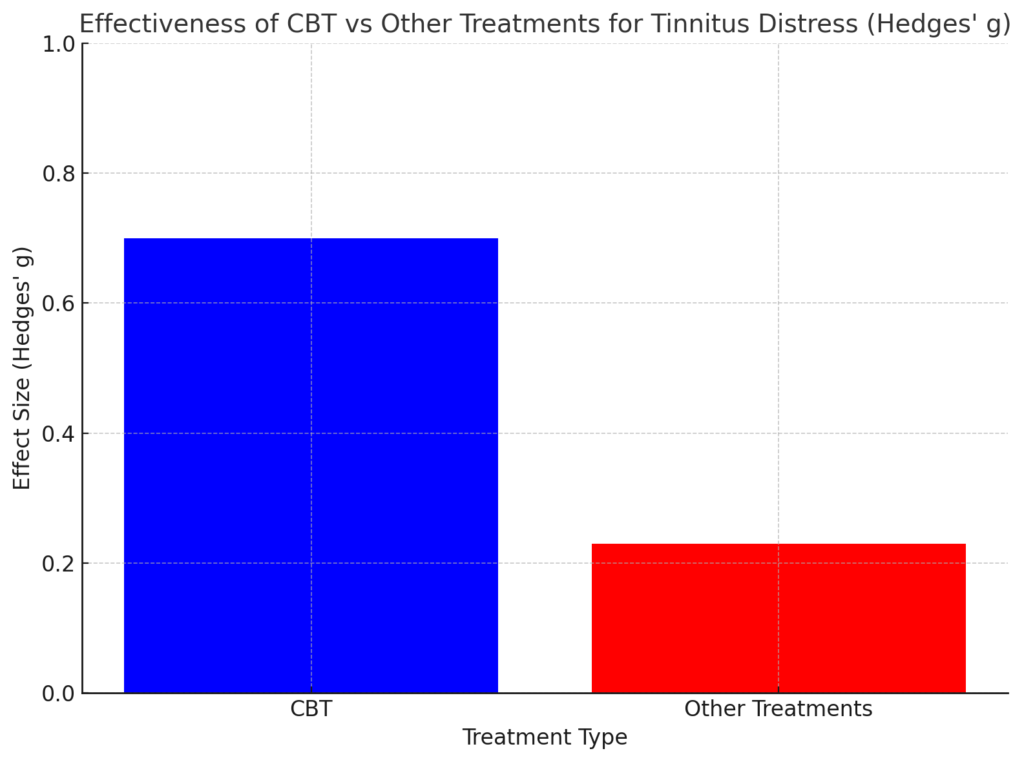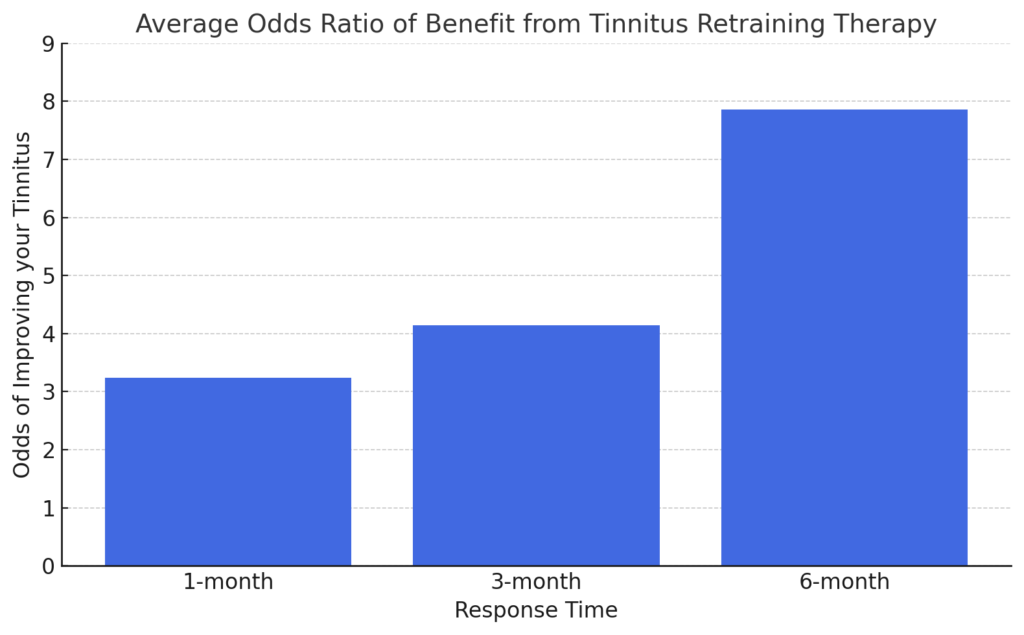Effective Tinnitus Management
Reductinn offers professional cognitive behavioral therapy techniques for tinnitus, allowing users to access brief audio lessons anytime, anywhere for improved well-being.
Cognitive behavioral therapy is consistently demonstrated to be the most effective treatment for tinnitus.
Tinnitus Training
Audio lessons designed to alleviate tinnitus symptoms. Accessible and effective.
Therapeutic Exercises
Short guided exercise sessions to practice what you learned and establish good habits to conquer your tinnitus.
Progress Tracking Features
Measure your tinnitus severity by taking the Tinnitus Handicap Inventory, a clinically proven test, and watch as our app helps you get better.
Tinnitus is Common:
12-30% of the population suffers from tinnitus!
Of those with tinnitus, 1 in 10 have severe symptoms.
Tinnitus is Terrible, Causing:
These negative effects take a toll on your work, social life, and family.
Most Treatments don’t work
What has poor evidence of efficacy:
What’s proven to work to improve your quality of life:
Cognitive Behavioral Therapy (CBT) Works

Figure 1: Adapted from Hesser et al meta-analysis (citation below), showing CBT has a moderate to large effect on reducing tinnitus, compared to other treatments which offer a small benefit.
Tinnitus retraining works

Adapted from Han et al meta-analysis (citation below)
Reductinn was designed and developed by a neurotologist (doctor specializing in the treatment of hearing loss and tinnitus) who was frustrated by the lack of effective, accessible, and inexpensive options for patients.
YUAN LIU, MD
Ready to silence the ringing?
Download the app today, and test it out, FREE!
Citations
Aazh, H., Landgrebe, M., Danesh, A. A., & Moore, B. C. (2019). Cognitive behavioral therapy for alleviating the distress caused by tinnitus, hyperacusis and misophonia: current perspectives. Psychology Research and Behavior Management, 991-1002.
Beukes, E. W., Andersson, G., Fagelson, M., & Manchaiah, V. (2022). Internet-based audiologist-guided cognitive behavioral therapy for tinnitus: randomized controlled trial. Journal of Medical Internet Research, 24(2), e27584.
Cima, R. F., Maes, I. H., Joore, M. A., Scheyen, D. J., El Refaie, A., Baguley, D. M., & Vlaeyen, J. W. (2012). Specialised treatment based on cognitive behaviour therapy versus usual care for tinnitus: a randomised controlled trial. The Lancet, 379(9830), 1951-1959.
Han, M., Yang, X., & Lv, J. (2021). Efficacy of tinnitus retraining therapy in the treatment of tinnitus: A meta-analysis and systematic review. American Journal of Otolaryngology, 42(6), 103151. https://doi.org/10.1016/j.amjoto.2021.103151
Langguth, B., Elgoyhen, A. B., & Cederroth, C. R. (2019). Therapeutic approaches to the treatment of tinnitus. Annual Review of Pharmacology and Toxicology, 59, 291–313. https://doi.org/10.1146/annurev-pharmtox-010818-021556
Li, J., Jin, J., Xi, S., Zhu, Q., Chen, Y., Huang, M., & He, C. (2019). Clinical efficacy of cognitive behavioral therapy for chronic subjective tinnitus. American Journal of Otolaryngology, 40(2), 253-256.
Hesser, H., Weise, C., Zetterqvist Westin, V., & Andersson, G. (2011). A systematic review and meta-analysis of randomized controlled trials of cognitive–behavioral therapy for tinnitus distress. Clinical Psychology Review, 31(4), 545–553. https://doi.org/10.1016/j.cpr.2010.12.006
Kaldo, V., Levin, S., Widarsson, J., Buhrman, M., Larsen, H. C., Wiklund, M., … & Andersson, G. (2008). Internet versus group cognitive-behavioral treatment of distress associated with tinnitus: A randomized controlled trial. Behavior Therapy, 39(4), 348-359.
Martinez-Devesa, P., Perera, R., Theodoulou, M., & Waddell, A. (2010). Cognitive behavioural therapy for tinnitus. Cochrane Database of Systematic Reviews, (9).
Contact us: contact@reductinn.com
© Dirkes Medical, PLLC, 2024-2025. All rights reserved.



